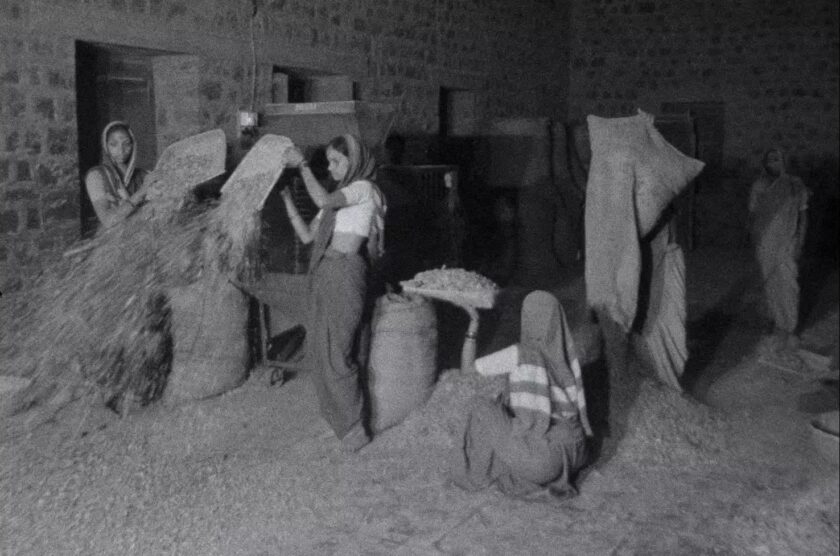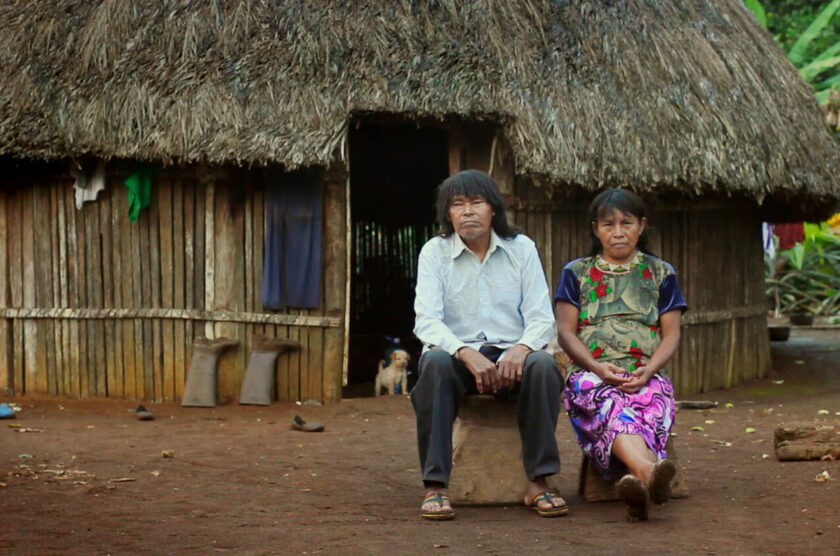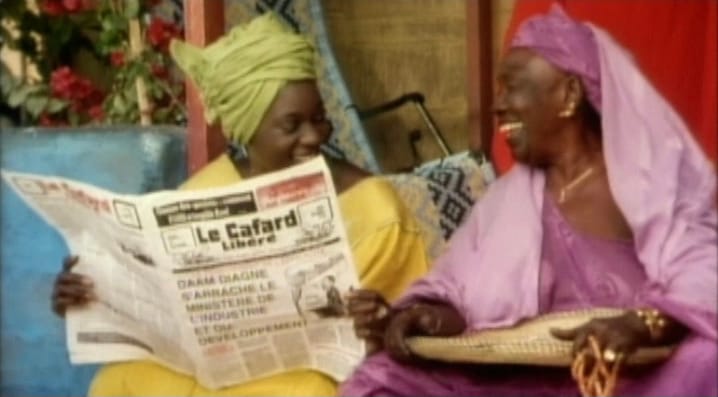Tambaku Chaakila Oob Ali (Brasas de tabaco)
por Yugantar
India, 1982
regiones de transmisión: global con algunos excepciones
sinopsis
Tambaku Chaakila Oob Aali narra la historia y las huelgas del sindicato femenino de más de 3.000 trabajadoras del tabaco de Nipani (Karnataka). Se realizó en colaboración con trabajadoras de las fábricas de tabaco. La película documenta, recrea y lleva adelante uno de los mayores movimientos de mano de obra no sindicada de su época y contexto, que desencadenó procesos de sindicalización en todo Karnataka y Maharashtra a lo largo de la década de 1980. Atraído por el poder de estas huelgas a gran escala provocadas por las trabajadoras y siguiendo el espíritu de movilización de la izquierda obrera y el movimiento feminista, el colectivo cinematográfico Yugantar se embarcó en su segunda película. El colectivo pasó cuatro meses con las trabajadoras de la fábrica de tabaco de Nipani, escuchando sus relatos sobre las condiciones de explotación laboral, debatiendo estrategias de sindicalización y pasos concretos para ampliar las solidaridades entre las fábricas con vistas a acciones de huelga masivas. Gracias a esta colaboración, el equipo de rodaje pudo filmar circunstancias internas de las fábricas hasta entonces no representadas en el cine, siguiendo las indicaciones de las trabajadoras sobre qué, dónde y cómo debían grabarse sus acciones. El colectivo cinematográfico elaboró un guión suelto a partir de los relatos de las trabajadoras. El compromiso continuo de Yugantar con la complejidad de las amistades políticas y la forma de "estar con" provocó una práctica cinematográfica colaborativa pionera en aquel momento, plasmada en recreaciones a gran escala de protestas, una voz en off como testimonio pluriverso y la producción de la primera presencia en pantalla de mujeres de la clase trabajadora organizándose y "hablando al poder". Esta película es un poderoso ejemplo de un tercer cine feminista, una película de fábrica, también llamada "manual de huelga" por activistas sindicales actuales.
sobre el colectivo
Yugantar está considerado el primer colectivo cinematográfico feminista de la India. Fundado por Deepa Dhanraj, Abha Baiya, Navroze Contractor y Meera Rao en 1980, el colectivo desarrolló cuatro películas junto con grupos de mujeres ya existentes o surgidos de ellos: con trabajadoras domésticas de Pune (Molkarin, 1981), trabajadoras de una fábrica de Nipani (Tambaku Chaakila Oob Aali / Tobacco Embers, 1982), con Stree Shakhti Sanghatana, un colectivo de investigación y activismo feminista de Hyderabad (Idi Katha Maatramena / ¿Es esto sólo una historia? 1983) y con miembros del movimiento ecologista Chipko (Sudesha, 1983).
La energía revolucionaria de los campus universitarios de la época, los movimientos por la libertad civil y la izquierda radical, las luchas por el derecho a la tierra y una sensación general de posibilidades y estallido de activismo creativo que se produjo con la aparición del movimiento autónomo de mujeres durante el periodo posterior a la Emergencia desencadenaron la fundación del colectivo en 1979/80. El nombre del colectivo lleva el aire de la transformación histórica radical: Yugantar/ Cambio a una nueva era.
Las obras cinematográficas de Yugantar también se encuentran entre las pioneras del cine documental independiente estatal en la India que se estableció cada vez más durante las décadas de 1980 y 1990 y, por lo tanto, deben abordarse como parte de un movimiento naciente del documental político independiente en la India. El reconocimiento de la obra de Yugantar es vital para subrayar la importancia indiscutible del enfoque particular de las mujeres cineastas y el impacto del discurso feminista en las innovaciones de las prácticas y estéticas documentales dentro y fuera del contexto indio.
Hoy podríamos considerar las películas de Yugantar como documentos vivos y en continua reactivación, como parte de un archivo feminista en continua metabolización que ocupa su lugar en el Ahora y en el futuro.




